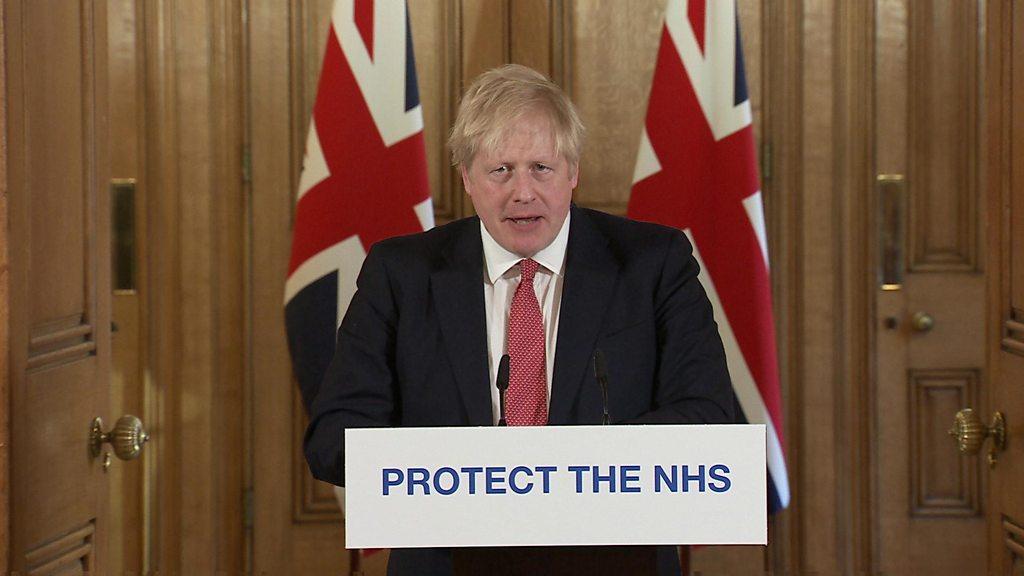Coronavirus: 'High risk' list misses off thousands of people
- Published
- comments
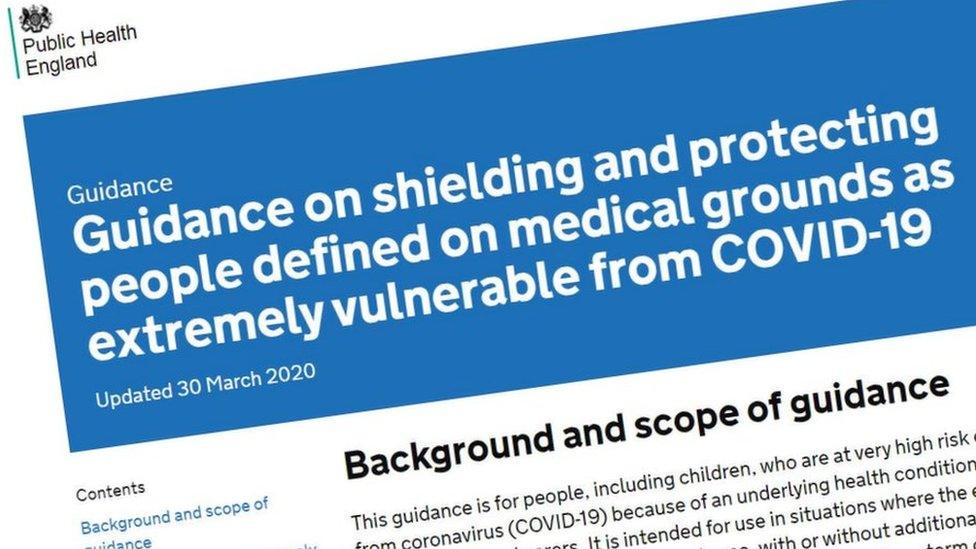
The government has said about 1.5 million people have been identified as needing to "shield"
Thousands of people have been missed off the government's high risk list for Covid-19 despite meeting the criteria.
Among them have been transplant patients, people with asthma and some with rare lung diseases.
Many are worried it will affect their ability to access food and medical supplies as they shield from the virus, unable to leave their homes for at least 12 weeks.
Supermarkets have been using the list to give priority to vulnerable customers, meaning those not included have already missed out on opportunities for which they would have been eligible.

Lucy Pearson: Transplant recipient
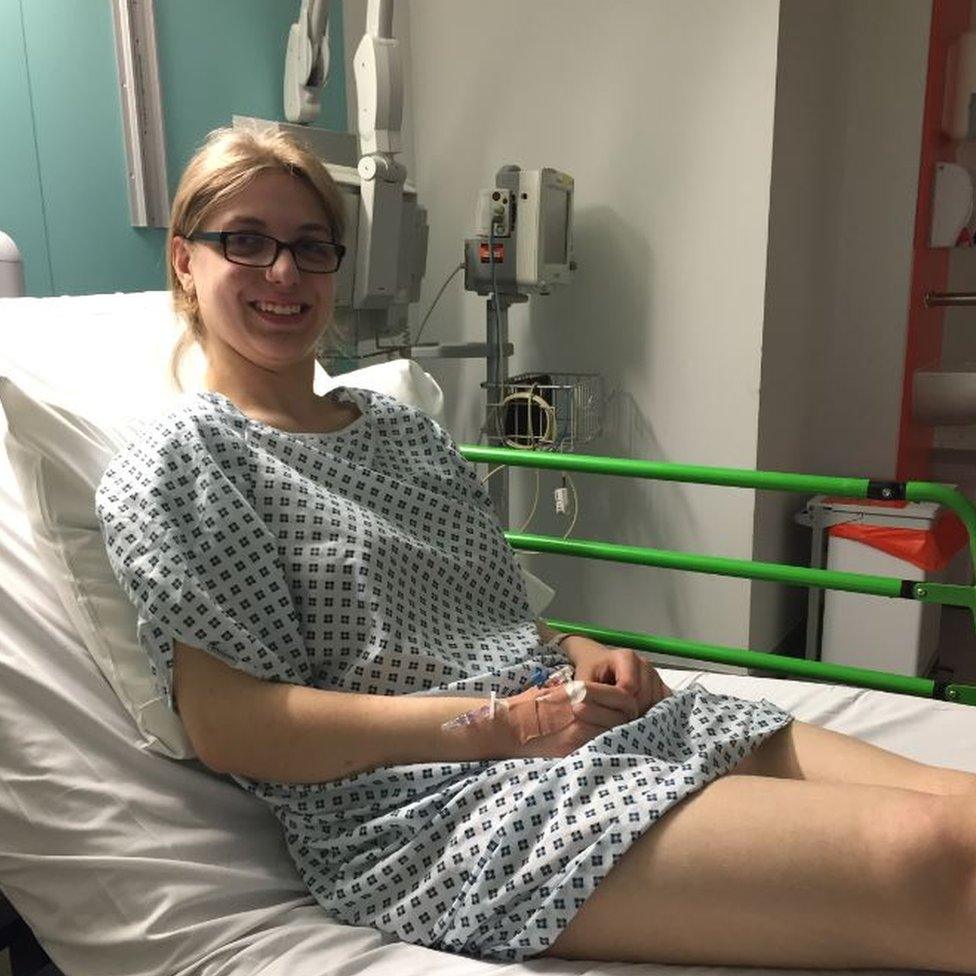
"It's like she's been forgotten," said Bev Pearson, mother of 20-year-old heart transplant patient Lucy Pearson.
Miss Pearson, from Whitsbury in Fordingbridge, Hampshire, had her transplant 14 years ago and still visits hospital for regular check-ups.
She has been shielding in the home she shares with her mother, brother and sister - none of whom have been venturing out in an attempt to protect her.
"I managed to book three food delivery slots before everybody got put into isolation but after that I can't get any more food delivery slots," Ms Pearson said.
Despite registering her daughter on the government list herself, she said she had received no confirmation.
When she asked her GP she was told it had "nothing to do with the surgery", she added.
Ms Pearson said a neighbour was currently helping to collect medication for Lucy but she was "worried about getting food".
"We're OK for a couple of weeks but what after that? We've got another 11 weeks of this yet."
She said she had come across other transplant patients in the same position, and said: "People are beginning to feel despondent."

Liz Goldfinch: Lung disease patient
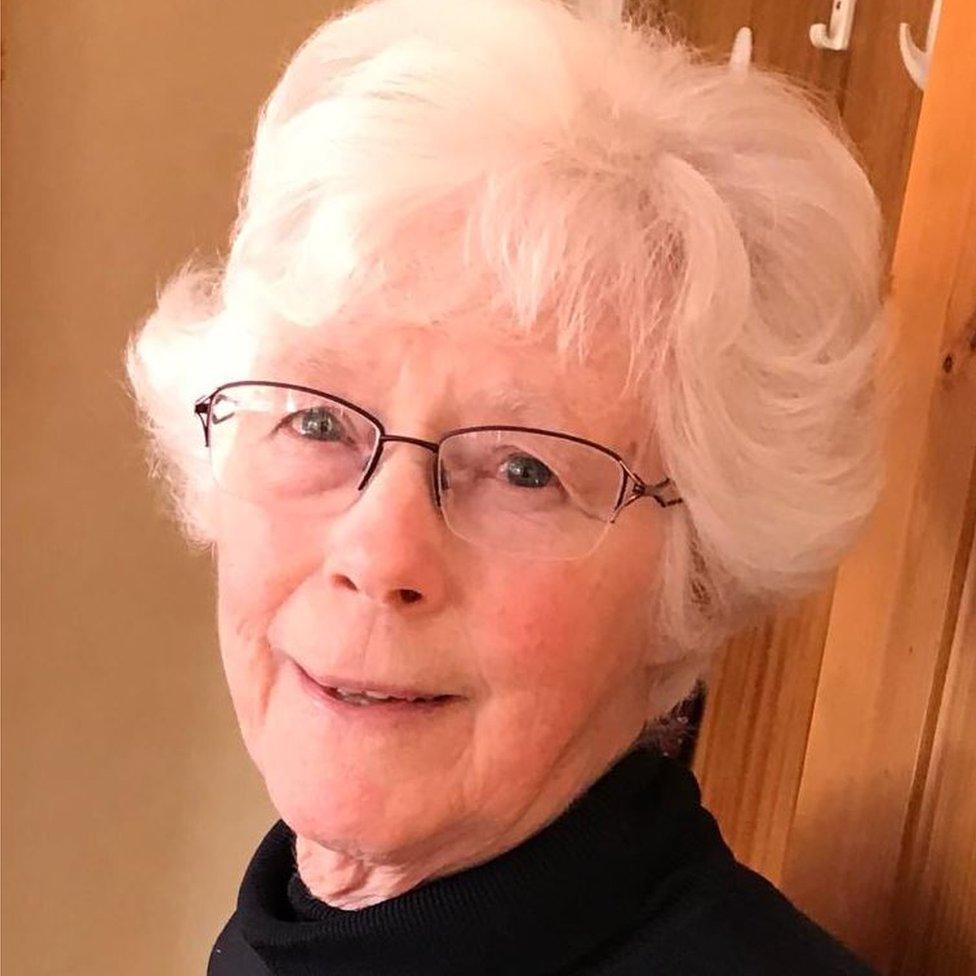
"I'd be fairly unlikely to survive if I got coronavirus," said 79-year-old Liz Goldfinch.
Mrs Goldfinch, from Droitwich in Worcestershire, is self-isolating with her 88-year-old husband as she has cryptogenic organising pneumonia (COP) - a rare lung condition - and Parkinson's disease.
"I haven't yet received a letter and if I have been missed off the list I feel pretty annoyed and worried I suppose," she said.
"At the moment we're OK as we have neighbours who have been helping deliver food and anything else we might need.
"I guess it all depends how long this goes on for. If they can no longer help, if they get ill or whatever, it could be a problem.
"I haven't been able to get a supermarket delivery slot up to now. So that would be a problem if no-one was able to help us."
Mrs Goldfinch said she hoped she would not be forced into a position that meant she or her husband would have to leave the house.
"If I just get a cold or flu then my COP means I am very likely to end up in hospital," she said.
"This has already happened on two occasions in he last three years. I suspect it would be a much more dire situation if I caught coronavirus."

Shivani Mistry: Coping with asthma
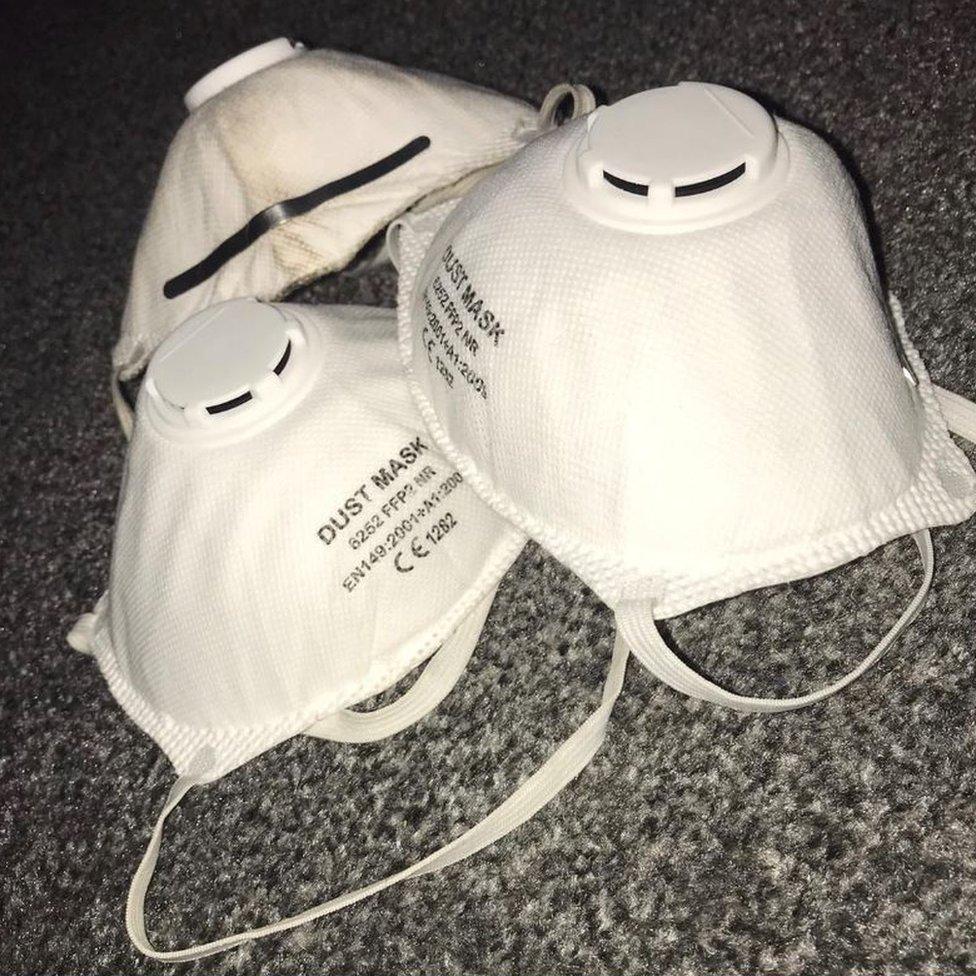
"Sometimes I can have three or four asthma attacks in one day if I catch a cold, and I find it really difficult to breathe," said Shivani Mistry, from Telford in Shropshire.
The 23-year-old lives in a shared house and has been trying to isolate herself from the rest of her housemates.
"I'm not angry that I have been missed off the list as there are more vulnerable people than me but it is a bit of a horrible situation," she said.
"I can ask for help but I don't like asking," Ms Mistry said. She said money was also an issue because she had no cash in the house.
"I have had to wait for three weeks for a food delivery - I've got another week to go, so I have been surviving off the very last of my supplies from the week before, that were only supposed to last a week.
"For three days straight I was just living off potatoes.
"My boyfriend sent me some facemasks so I could risk going out to the shop, which I have tried but it is very scary.
"It was just insane the amount of people who were not considerate and keeping their distance. People were brushing past me."

Who needs to shield?
Solid organ transplant recipients
People with specific cancers:
people with cancer who are undergoing active chemotherapy
people with lung cancer who are undergoing radical radiotherapy
people with cancers of the blood or bone marrow such as leukaemia, lymphoma or myeloma who are at any stage of treatment
people having immunotherapy or other continuing antibody treatments for cancer
people having other targeted cancer treatments which can affect the immune system, such as protein kinase inhibitors or PARP inhibitors
people who have had bone marrow or stem cell transplants in the last six months, or who are still taking immunosuppression drugs
Other conditions:
People with severe respiratory conditions including all cystic fibrosis, severe asthma and severe COPD
People with rare diseases and inborn errors of metabolism that significantly increase the risk of infections (such as SCID, homozygous sickle cell)
People on immunosuppression therapies sufficient to significantly increase risk of infection
Women who are pregnant with significant heart disease, congenital or acquired
Source: NHS England, external

NHS Digital, which compiled the list, said it had identified about 900,000 patients who should have already received an official letter or text.
However, it said GPs and hospital doctors were now adding a further 600,000 patients.
It also advised people to register themselves on the government website, external if they needed extra help and support.
The Department for Environment, Food and Rural Affairs (Defra) and the Royal College of General Practitioners have also advised those who feel they had been missed off the list to contact their GPs.
Prof Martin Marshall, chair of the Royal College of General Practitioners, said: "GP practices are working hard to notify patients who are considered to be in a vulnerable group, and therefore at higher-risk of getting Covid-19, about measures they should take to keep as safe as possible."
He said the information had been collected from GP computer systems and added "every effort is being made to ensure that the data is accurate".
"We're in an ever-changing situation and NHS England are currently updating their guidance for GPs on delivering care for vulnerable patients," he said.
Defra also said it was "working quickly" to support those who did not fall into the "clinically vulnerable" category but still needed help, including elderly people and those with disabilities.

A SIMPLE GUIDE: How do I protect myself?
AVOIDING CONTACT: The rules on self-isolation and exercise
LOOK-UP TOOL: Check cases in your area
MAPS AND CHARTS: Visual guide to the outbreak

- Published13 July 2021
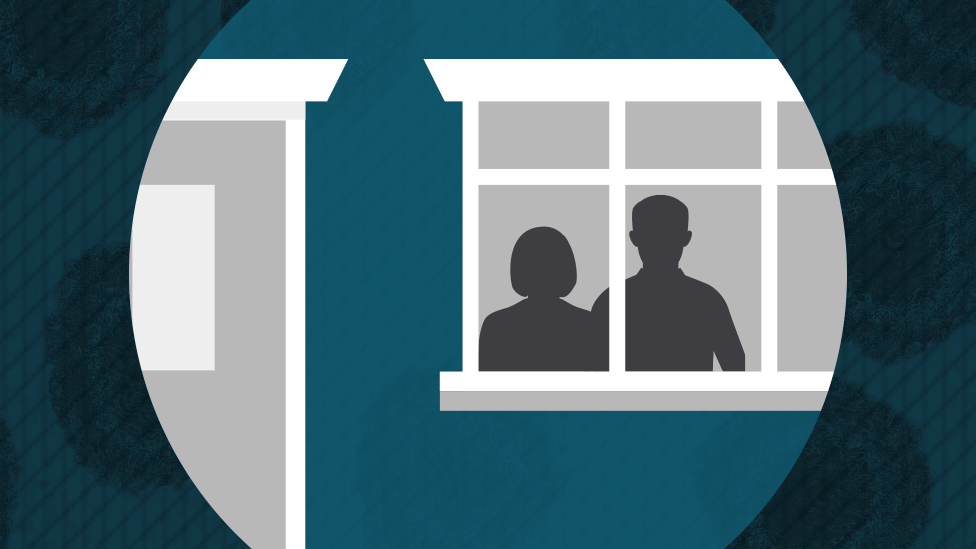
- Published29 March 2020
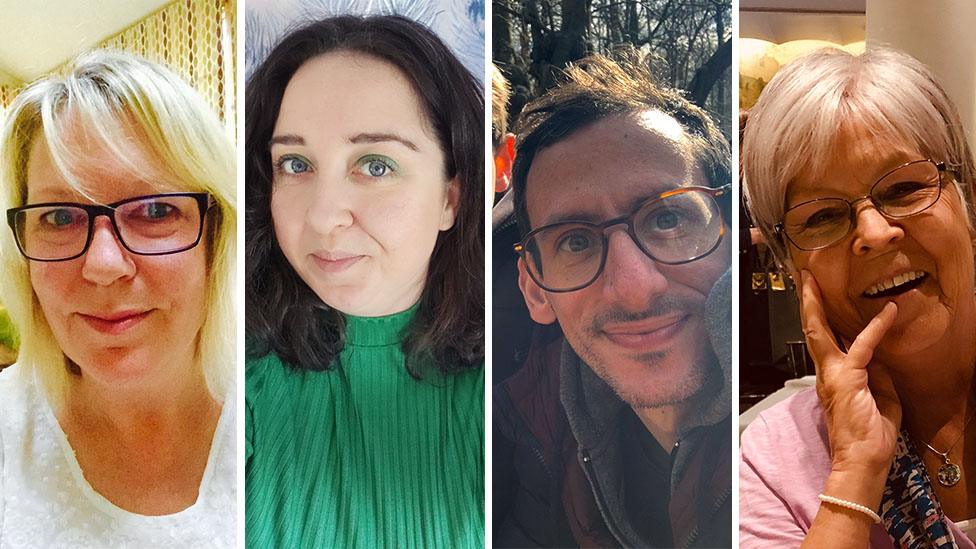
- Published7 April 2020
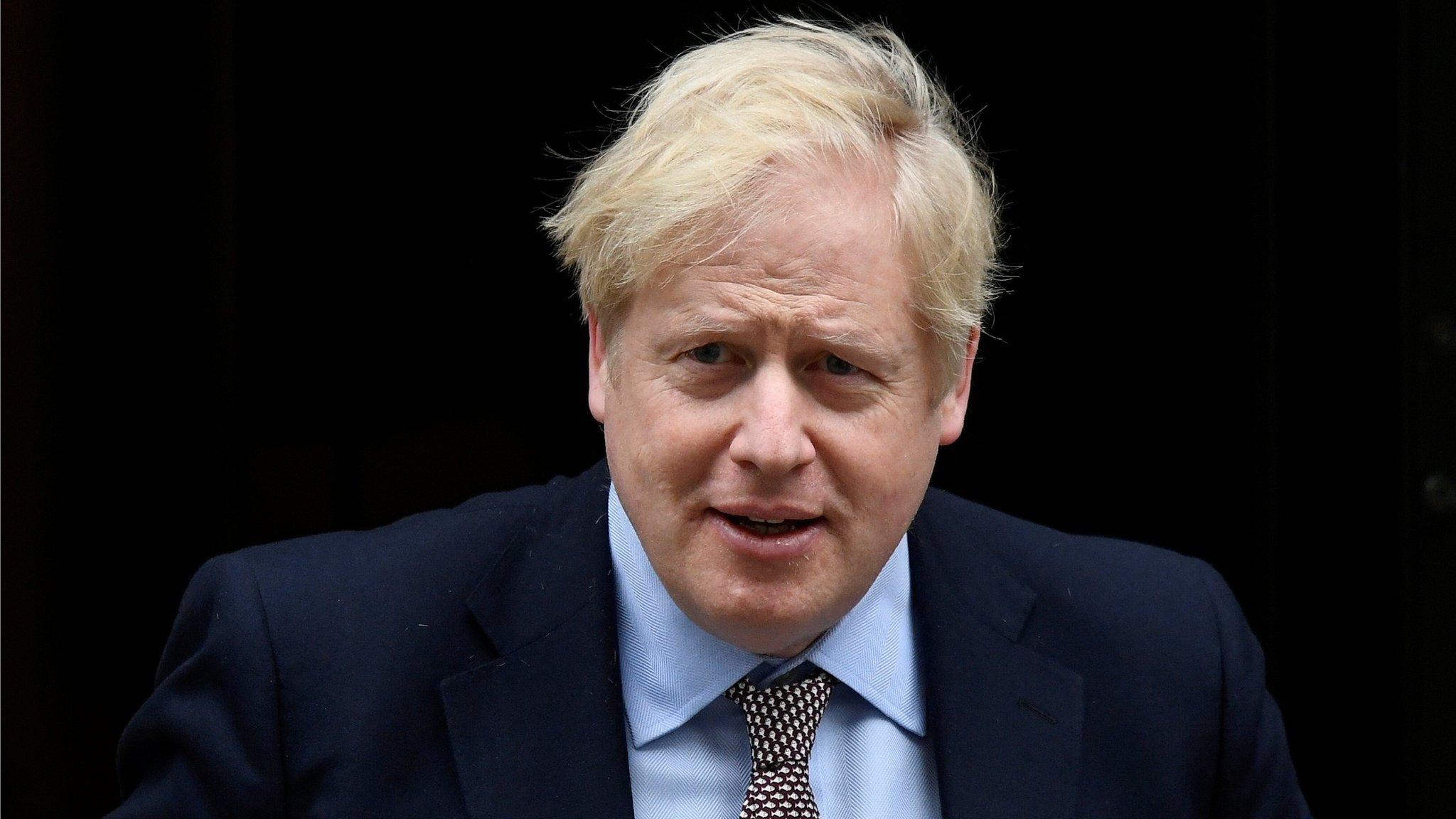
- Published7 April 2020
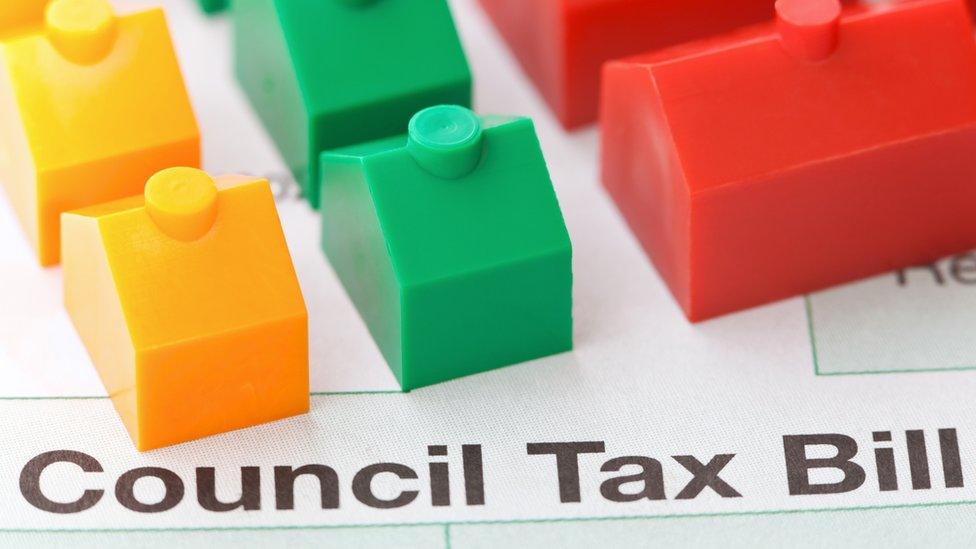
- Published1 April 2020
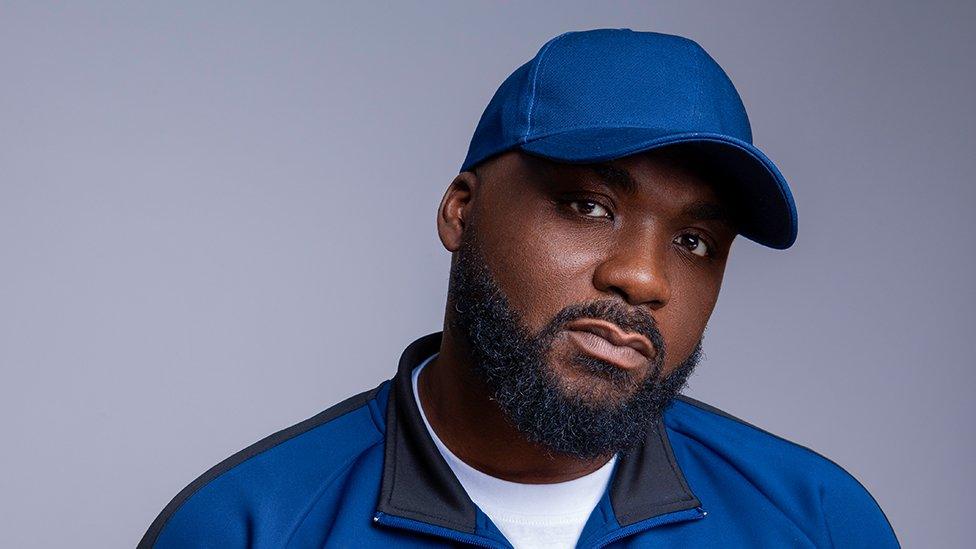
- Published22 March 2020
